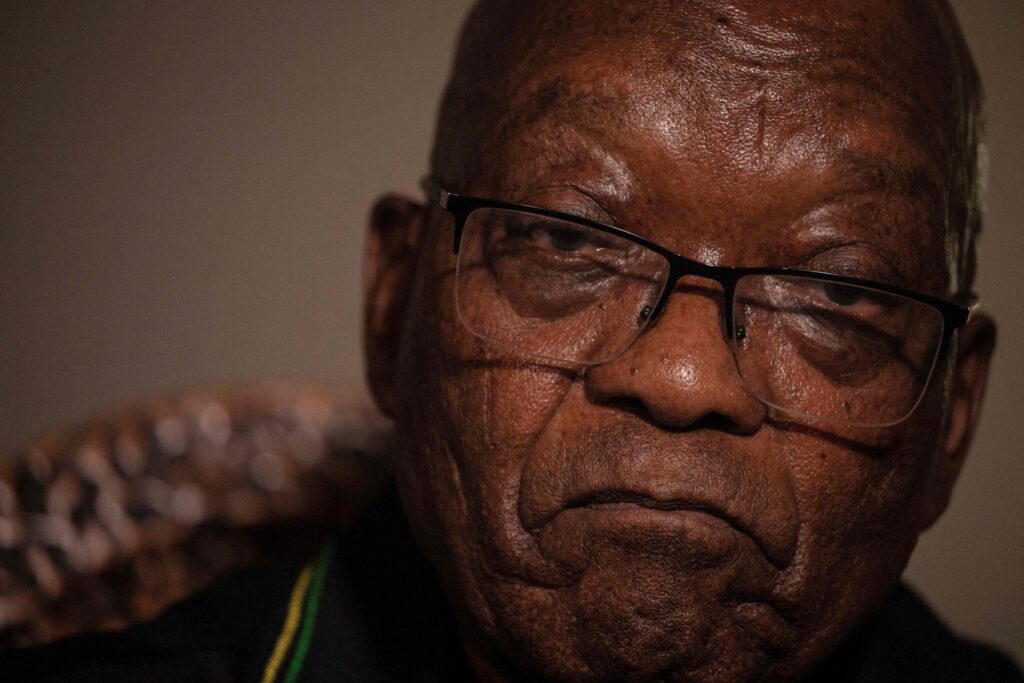On Thursday, the Constitutional Court ordered former President Jacob Zuma, who is currently in Russia seeking medical treatment, to return to prison and serve the remainder of his sentence. This decision comes amidst a backdrop of legal battles and public debate surrounding Zuma’s incarceration, further complicated by the former National Commissioner of Correctional Services, Arthur Fraser’s overruling of the Medical Parole Advisory Board’s (MPAB) recommendation that Zuma did not qualify for medical parole.
The Constitutional Court’s ruling reaffirms the principle that no individual, regardless of their status or position, is above the law. The former President was initially sentenced to 15 months in prison in 2021 for contempt of court due to his repeated refusal to cooperate with the Commission of Inquiry into State Capture, which sought to investigate allegations of widespread corruption during his tenure.
Despite the initial ruling, Jacob Zuma had managed to avoid imprisonment through various legal maneuvers and appeals. However, the Constitutional Court’s decision makes it clear that his attempts to circumvent justice have reached their limits, even as he seeks medical treatment abroad. This ruling stands in contrast to the controversial decision made by Arthur Fraser, the former National Commissioner of Correctional Services, who overruled the MPAB’s recommendation against granting Zuma medical parole.
Arthur Fraser’s decision to overrule the MPAB’s recommendation has raised concerns among critics, who question the transparency and integrity of the process. It has led to accusations of political interference and has generated a heated public debate about the potential abuse of power. The Constitutional Court’s ruling serves as a counterbalance, reaffirming the court’s authority and reinforcing the principle that decisions regarding a person’s incarceration should be made impartially and based on legal merits.
The Concourt’s ruling reaffirms the importance of upholding the rule of law and ensuring accountability for all individuals, regardless of their circumstances. The decision underscores the judiciary’s independence and sends a strong message to the South African public that no one can evade the consequences of their misconduct, even when faced with controversial decisions made by other authorities.
While the ruling has generated mixed reactions, supporters of the decision view it as a triumph for democracy and an affirmation of the Constitution’s strength. They argue that holding a former President accountable for his actions is vital in the fight against corruption and for the preservation of democratic values.
Critics of the ruling, along with concerns about Arthur Fraser’s decision, express fears about potential political motivations and its impact on the credibility of the justice system. They believe that the focus should be on ensuring a fair and transparent process for all prisoners, including former presidents, without undue interference from political figures.
The ruling also has broader implications for South Africa’s ongoing efforts to combat corruption and rebuild public trust. It serves as a reminder that no individual, regardless of their stature or medical condition, should receive preferential treatment when it comes to matters of justice. The Constitutional Court’s decision reinforces the importance of independent decision-making and the need to uphold the rule of law, regardless of external factors.
Jacob Zuma’s current presence in Russia seeking medical treatment adds complexity to his case. The details of his re-incarceration will need to be addressed by the relevant authorities, who are tasked with ensuring a fair and lawful process. The timing and logistics of his return will likely be subject to careful consideration, taking into account both the Constitutional Court’s ruling and his medical situation.
